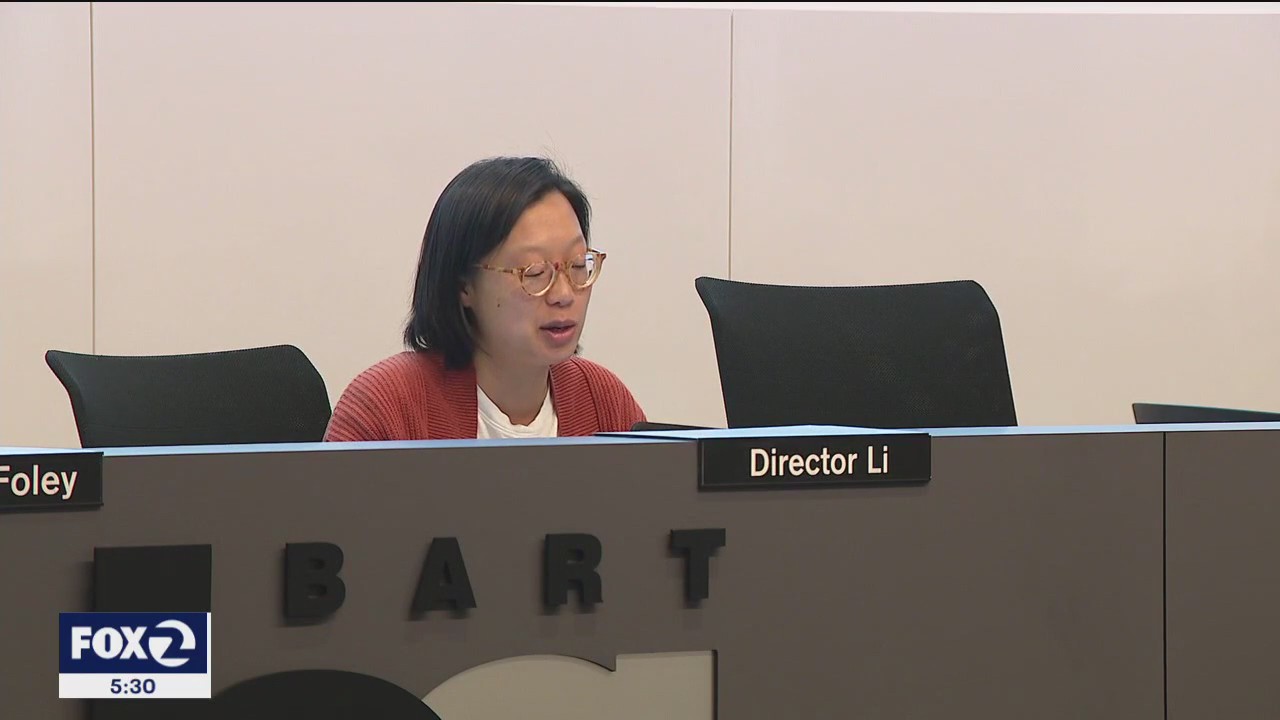BART board votes to increase fares and parking fees

BART plan would raise fare 11% over 2 years
BART looks to revise its two-year budget to stave off making drastic cuts in services.
OAKLAND, Calif. - After hours of debate, BART's board of directors late Thursday voted to increase fares and parking fees. The agency is facing a huge budget deficit as it struggles to increase ridership.
BART and other transit agencies face falling off a financial cliff as ridership is simply not coming back.
"Before the pandemic, we were very reliant on passenger fares for our operating costs and we were very proud of the fact that we were able to do that. But our ridership went off a cliff during the pandemic and so we're trying to find a new source of sustainable funding," said BART spokesperson Jim Allison.
Now BART's board has a lot on its plate to vote on to complete a two-year budget including a hefty fare increase.
"If they raise the price, the effects is gonna be the same," said BART rider Mahreeb Berooui. "The price for the travelers will be very similar to what you pay to drive a car."
The plan includes raising fares 11% over two years, meaning a $5 fare would go up to $5.55.
Low-income riders would pay 50% for any ride through the Clipper START fare discount.
BART would also raise parking fees, but the amount has yet to be determined. The floors and ceilings of the parking policy could be gradually adjusted based on inflation over time.
The proposed price range for the daily fee is $3 to $6.30 per day from its current $1 to $3 per day. For the single/multi-day fee, the proposed fee is $4 to $11 compared to the current price of $4 to $7; for the monthly fee, the proposed fee is $84 to $220, an increase from the current $63 to $105 range.
The proposal also extends the hours for which parking is paid to include afternoons and weekends at stations where lots are 90 percent full.
Due to parking being readily available, this change will not immediately impact most stations.
Parking prices will vary by station, and local parking taxes apply in certain areas. San Francisco has a parking tax of 25 percent, Oakland has a 18.5 percent tax and Berkeley has a 10 percent tax.
SEE ALSO: BART 'shell shocked' at turtle trespassing on the tracks
BART's parking operating cost deficit was about $17 million this fiscal year, which is one of the reasons behind the implementation of the new policy. Updating the policy is also a way for BART to be in sync with parking prices across the Bay Area and among peer transit agencies, stated the resolution's executive decision document.
All of this would allow BART to spend an additional 7.5% for operational expenses such as energy, maintenance and wages.
Nonetheless, BART expects that operating revenues, minus operating expenses would leave it with a two-year deficit of $93 million.
"[It's] painful because I like travel two hours just to get to work every day. So, $14, if it goes up to like $20, that's $100 a week," said rider Tarikh Hudson.
One rider said the increases make sense because of the lack of revenue from low ridership.
It could get worse if the State of California does not put emergency statewide transit funding into its budget due next week.
"In the meantime, we need the state to provide some temporary funding until we get to the point that we can keep going until we have a sustainable source of income," said Allison.
Bay City News contributed to this report.

